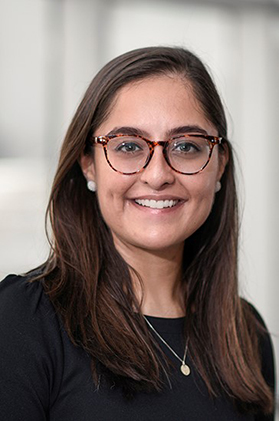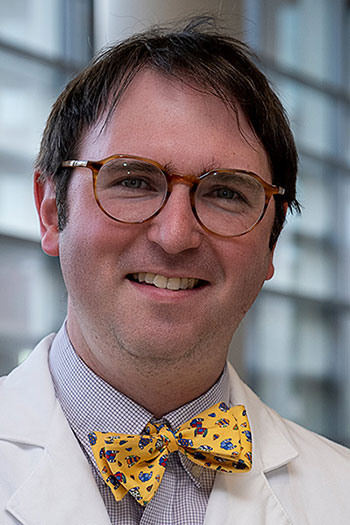Eye on the Prize: Patient Outcomes Research in Medical Education. ATS Scholar, ats-scholar
Citation: Cooper, A. Z., Jain, S., Santhosh, L., & Carlos III, W. G. (2023).
Summary
The article discusses the importance of designing interventions in medical education that are able to clinical and patient-centered outcomes. The authors identify barriers to studying these outcomes and offer concrete recommendations as to how to address these challenges while designing medical education research.
Interview
DV: What kind of research training do you all recommend for medical educators that are interested in studying clinical outcomes?
AC: The bedrock of skills development in medicine is thoughtful, deliberately constructed mentorship. This is no different. If you want to learn how to measure clinical outcomes in medical education research, cultivate mentoring and collaborative relationships with experts in health outcomes research. As we discussed in the paper, there are self-education opportunities available to educators in this space, such as auditing masters-level courses on research methodology or even to pursue clinical research certification. For example, the Association of Clinical Research Professionals offers various certification options for clinical researchers. I think the key is to really focus on what skills you're trying to gain and why, and then map out a development plan based on those two factors.
DV: How should we engage funding bodies on a broader level (NIH, professional societies, individual hospitals/universities) to advocate for more attention to the value of medical education research?
AC: I think there's a couple of tiers to this question. On a practical level, individual medical education researchers can and should apply for available educational grant funding from subspecialty societies or national organizations (such as the ATS Section Medical Education Research Grant Programs or the AMA's Innovation Grant Program) if that will benefit their research agenda. Such grants are usually smaller and fund research expenses rather than time, but there are education-focused grants that protect a researcher's time and pay part of their salary, such as the Jeremiah A. Barondess fellowship. As we discussed in the article, partnering and collaborating with health services researchers who have their own grant funding is another avenue available to education researchers. Industry partnerships also can offer grant funding opportunities, but that will come with a whole host of other limitations and structural issues to address. In terms of the larger conversation around grant funding for medical education research, part of what we were trying to convey in the paper is that educational research can find relevance in clinically focused grant funding schema, but that requires a clear delineation of how the educational research in question impacts larger healthcare systemic issues. For example, the I-PASS study, which we cited as an exemplar, had federal grant funding.
DV: Do you think that standardizing GME curricula across institutions could contribute favorably to medical education research?
AC: Standardization would mitigate one source of lack of generalizability in single institution educational research, and potentially facilitate multi-institutional projects. So, I think in that way it probably would help. But there still exist so many sources of variability from place to place that I don't see it as a panacea. At the same time, making curricula widely available to support evidence-based education across programs, such as the Ambulatory Care Curriculum from APCCMPD, is hugely valuable from an educational perspective.
Blog Post Author

Divya Verma is a second year pulmonary and critical care fellow at Emory University. She is interested in pulmonary hypertension and medical education, and enjoys working with learners at all levels.
Twitter: @divya_verma27
Article Author

Avraham (Avi) Cooper is a Pulmonary and Critical Care physician and Assistant Professor of Medicine at The Ohio State University. He studied English Literature at Yeshiva University in New York City before attending medical school at Harvard and Internal Medicine residency at Beth Israel Deaconess Medical Center, where he developed a deep passion for medical education and completed a Clinician Educator Track. After completing a Pulmonary and Critical Care Medicine fellowship at Ohio State, he joined the faculty there and is now in his second year as fellowship Program Director after serving as Assistant Program Director for three years. Avi has had many roles in SoME over the years, including having previously served on the Social Media team, as WEAR Blog Editor, and as the 2022-2023 Webinar Lead, and he is now the 2024 ATS SoME Program Chair. He has won multiple awards for teaching and humanism, loves novel ways of teaching and learning, and co-hosts The Curious Clinicians podcast.
Twitter: @AvrahamCooperMD



